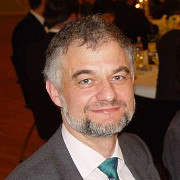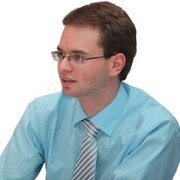Fog Computing for IoT Applications
First we briefly state the different scientific challenges arising from Internet-of-Things and its required new network and computing concepts. Then we discuss the software architectures and protocol stacks of a Fog Computing approach and its special case Mobile Edge Computing (MEC). As third step we present a lightweight virtualization concept derived from the rapidly evolving container virtualization suite Docker and its Swarm mode. We illustrate how the latter framework can be applied to realize effectively new IoT applications on clustered single-board computers like Raspberry Pi’s or Clearfog boards. We demonstrate our concepts by our recently developed Fog Computing platform HCL-BaFog which has been built by means of Hypriot Cluster Lab (HCL).
All presented software components are publically available as open source. The presented Fog Computing concepts will then be learnt by a hands-on session.
About the speakers
 Udo Krieger
Udo Krieger
University of Bamberg
Germany
https://www.uni-bamberg.de/en/ktr/
Udo R. Krieger, Dr.rer.nat., received the Diploma degree in Applied Mathematics and a Ph.D. degree in Computer Science from TH Darmstadt, Germany. From 1985 until 2003 he has been working as researcher at the Research and Technology Centre of Deutsche Telekom AG in Darmstadt. Since 2003 he holds a position as professor of computer science at Otto-Friedrich-University in Bamberg, Germany. Currently, he serves as area editor of the journal “Computer Networks”. His research interests include mobile and stationary next generation IP networks, traffic management and monitoring, as well as mathematical and statistical methods for performance analysis of distributed systems.
 Marcel Großmann
Marcel Großmann
University of Bamberg
Germany
https://www.uni-bamberg.de/en/ktr/
Marcel Großmann, M.Sc., received a Bachelor and Master degree in Information Systems from Otto-Friedrich-University, Bamberg, in 2010 and 2012. Since 2012 he has been working as research assistant at the Professorship of Computer Science, Computer Networks Group. His research interests include software-defined networks, lightweight virtualization concepts for NGNs, the application of single-board computers in IoT, and performance analysis of Android based end systems.